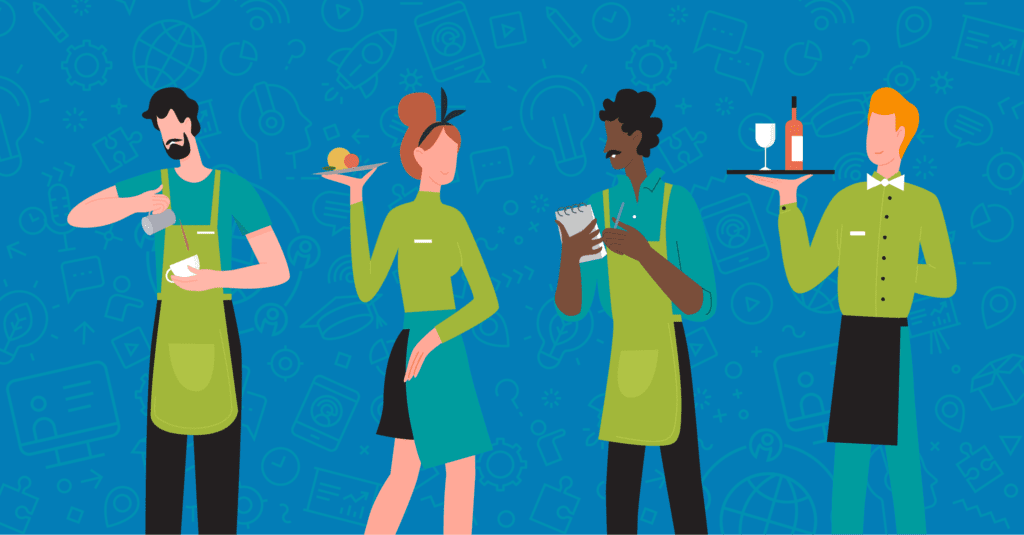Frontline Worker Training is More Important Than Ever

Your first interaction with an employee at a retail store, hotel, or restaurant sets the tone for your entire experience. If you get the cold shoulder, you probably won’t come back anytime soon. The opposite is true if you receive warm and helpful service.
So what’s the difference between these two experiences? The frontline worker. But more specifically, how that employee was trained and prepared to interact with you.
First Impressions Count
In the fast-paced world of quick-serve restaurants, first impressions count not only for customers but also for new hires. Restaurant employee onboarding is your opportunity to make new hires feel part of the team and company culture.
That’s exactly what Jack in the Box realized when its learning and development team modernized its restaurant employee training. The goals were to speed up new employee proficiency as well as turn new hires into brand evangelists.
The company launched its Jenius platform, delivering digital training content so new hires have access to engaging, branded, and intuitive materials on mobile devices. Learning pathways guide frontline employees to what training is required next. New hires are also empowered with search capabilities so they can quickly find refresher training and reference materials while in the flow of work, which goes a long way toward employee retention.
Operational Knowledge Right When It’s Needed
When operations need to turn on a dime in response to situations out of your control (like a global pandemic), you need centralized communication, information, and employee access. Orangetheory Fitness had to shut the business down during the COVID-19 pandemic and figure out in a mere 72 hours how to shift its entire business operating model from in-person training and studio classes to virtual training and workouts.
Once the team came up with the idea of “Orangetheory Anywhere,” which included new procedures for training and communications, they discovered that by digitizing standard operating procedures they could keep frontline worker training up to speed no matter how fast things changed. Things like repeatable operational checklists enable field employees to execute flawlessly, and operational knowledge means everyone at Orangetheory, all 15,000 business and fitness professionals, is literally on the same “digital” page.
Speed, Access, and Consistency
Speed and consistency is the hallmark of success for most quick-serve restaurants, but achieving that is harder than it sounds. Taco Bell releases a new menu item every six weeks but the challenge was whenever a new item was added sometimes the CSAT score dropped in the first week of each new launch.
After some research, the problem was that crew members didn’t have an easy way to access training materials on new menu items. The company implemented a digital knowledge and training hub, which essentially made frontline worker training faster, more accurate, and more engaging. The result was a +5% increase in CSAT scores with new menu item releases.
Since frontline employees are the gateway to your brand, it’s critical that they receive the kind of training that prepares them to deliver better experiences with each customer interaction. Focus on delivering engaging frontline worker training and career development, and see how it makes a difference to both the customer experience and your bottom line.
